Mountaineers Matt Helliker and Jon Bracey relive Citadel climb
- Published
Matt Helliker and Jon Bracey attempted the Citadel ascent after seeing a "majestic picture" of one of its soaring ridgelines
Described as "the James Hunt and Niki Lauda of the climbing world", Matt Helliker and Jon Bracey's arduous attempt to scale one of Alaska's most remote peaks is the subject of a new documentary. But what drives the mountaineers to risk life and limb?
The towering, snow-capped peaks rise ominously, the sheer drops striking fear into all but the hardiest of souls.
There, perched on a tiny ledge, are two men and a flimsy looking tent - dwarfed by the scale of their surroundings.
It is a stark and isolated environment, but one English climbers Matt Helliker and Jon Bracey knew they would have to conquer if they were to complete their ascent of the imposing Citadel, part of the daunting Great Alaskan Range.
The pair were inspired to launch their attack on its never-before-ascended north-west ridge after being wowed by "a majestic photograph of its soaring beauty".
Armed with a minimum of equipment, they set about their attack. It would be an adventure initially dogged by bad weather and worse luck.
Forced to retreat almost 1,000m (about 3,300ft) after encountering sheer granite impervious to their "clean" method of climbing without hammering permanent bolts into the rockface, the pair regrouped and switched their focus to the north ridge.
It is a world where one wrong move can prove deadly and the inherent dangers are not lost on Helliker.
"It's a particularly exposed place," explains the 35-year-old. "In terms of a rescue, there's none of that available. If you get yourself into a situation, you've got to get yourself out of it."
"I've lost count of how many friends have died in the mountains climbing and skiing," he says, his happy-go-lucky tone giving way to sombre reflection.
"Last year alone there were five. There's no other sport with that fatality rate.
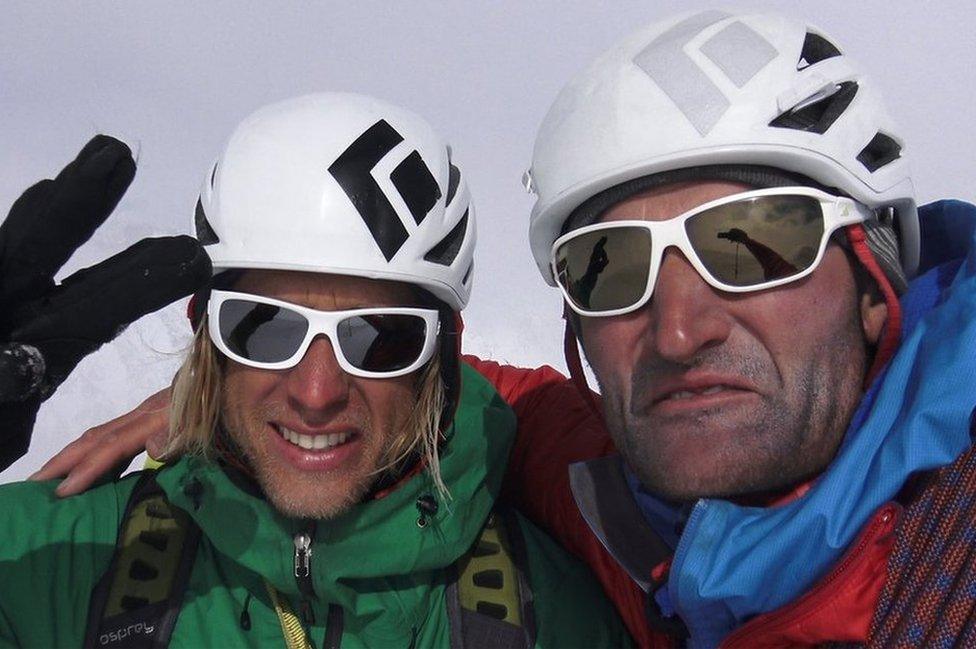
Alpinists Matt Helliker, left, and Jon Bracey have clocked up first ascents across Europe, Alaska and South America
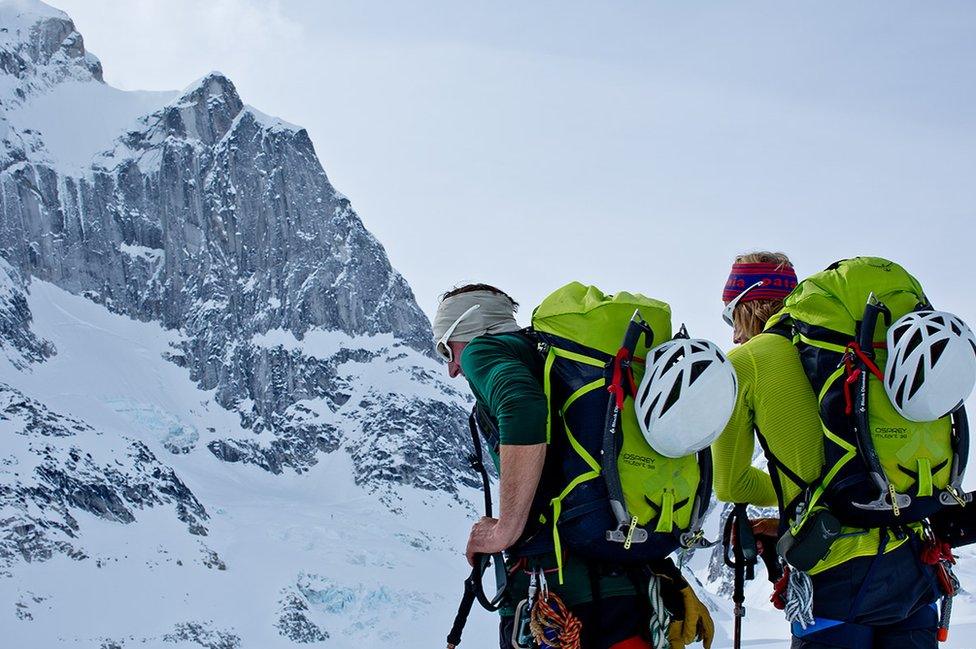
The Citadel is in Alaska's little-climbed Neacola Range
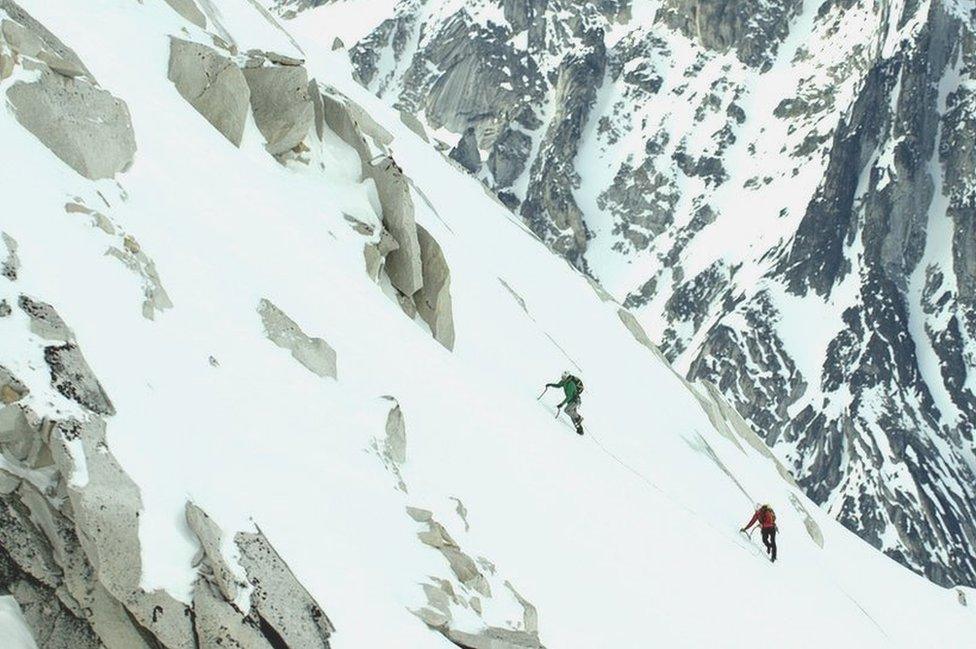
The Citadel's steep slopes are avalanche-prone
"In a dark sort of a way you kind of accept it. You probably wrongly think it's never going to happen to you.
"I've always tried not to have 'epics'. There've been a couple of times when I've thought 'this is it', but mentally and physically you're not even half way there.
"You can go another half way to get yourself out of a jam."
Bracey, 38, has a wife and two young children and responsibilities weigh heavily on his shoulders.
Reluctant to be away from his family for long periods of time, he says much preparation goes into planning and minimising the risks of each expedition.
"When I was younger I might have thrown caution to the wind. Now it takes months of mental preparation to be completely committed to the project.
"My wife has coping strategies when I'm going away. We withdraw into our own worlds.
"Ultimately, I'm still the same person I was before I had kids. I'm still a desperately passionate climber even though I'm a father.
"My wife knew me for a long time before we had children. She understood who I was and what made me tick. To deny myself the freedom to go off on some kind of adventure would have a big impact on me."
Originally from Somerset and Berkshire respectively, Helliker and Bracey now live in the French resort of Chamonix - "a cool place to live" says the younger of the two men, but one which can also "feel like a little bubble" with its focus on outdoor pursuits, fitness training and partying.
The pair's partnership stretches back a decade with acclaimed first ascents everywhere from the Alps to South America and the Himalayas.
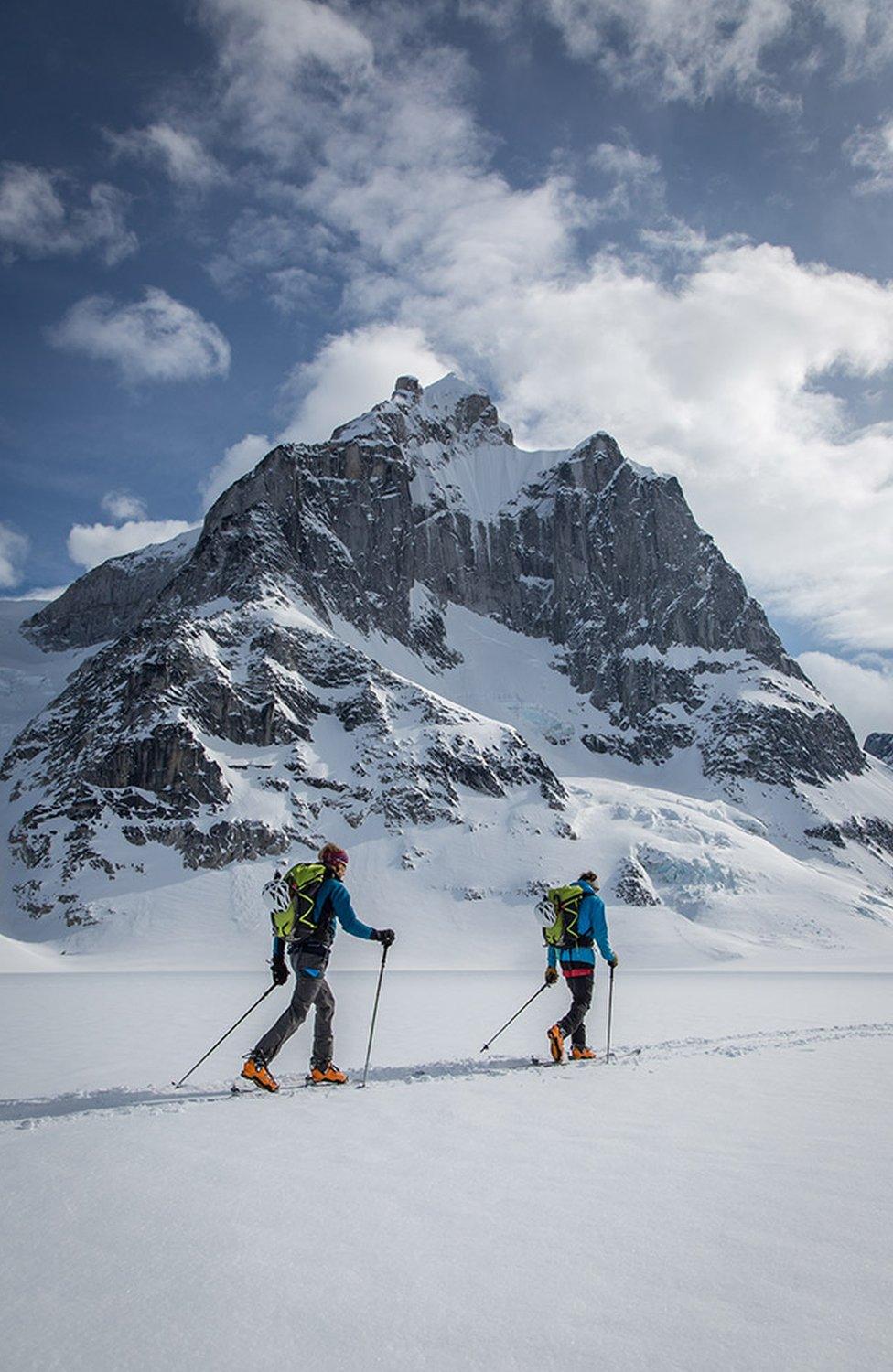
A "majestic" photograph showing the mountain's soaring ridgelines inspired the pair to take on the challenge
In some ways, it is perhaps an unlikely double-act.
With his long blonde hair, Helliker is a self-confessed "mountain and ski bum" with "non-existent" French. Fellow climber and pal Nick Bullock likens him to the 1970s playboy Formula 1 racer James Hunt while casting doting dad Bracey as his fastidious Austrian rival Niki Lauda.
It is a comparison that does not sit well in some quarters.
"My girlfriend didn't like that so much," says Helliker with a hearty laugh. "She didn't know who James Hunt was so she Googled him and saw he was a womanising boozer.
"I had to tell her I'm not like that! What Nick meant was that Jon can come across as a bit serious whereas I'm more chilled."
Bracey, for his part, takes it with good humour. He is keen, however, to play up his fun-loving credentials.
"On the surface maybe people can see that comparison, but I still have that childlike spirit and burning desire for adventure," he asserts firmly.
Their Citadel climb, undertaken in April, is the centrepiece of a documentary by award-winning filmmaker Alastair Lee.
Taking its title from the fearsome mountain, it is being screened at selected venues across the UK and on Saturday will be shown at the Kendal Mountain Festival, external, in Cumbria.
A DVD and download release will follow on 1 December.
For Lee, who had already helmed several mountaineering films before embarking on the trip to Alaska, it threw up an uncomfortable dilemma.
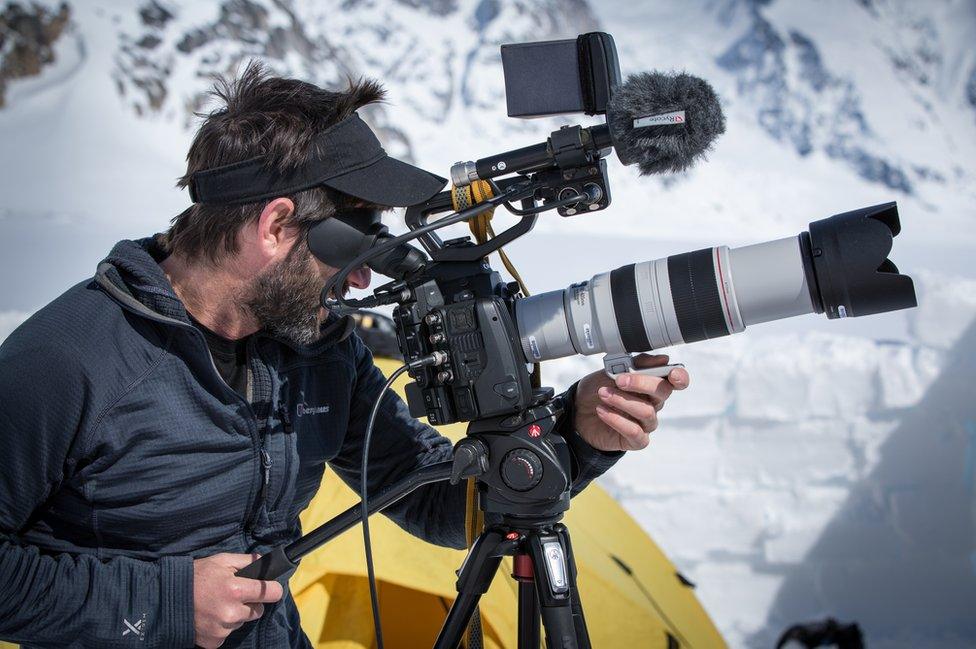
Alastair Lee's The Citadel is the first mountaineering documentary shot entirely in 4k resolution
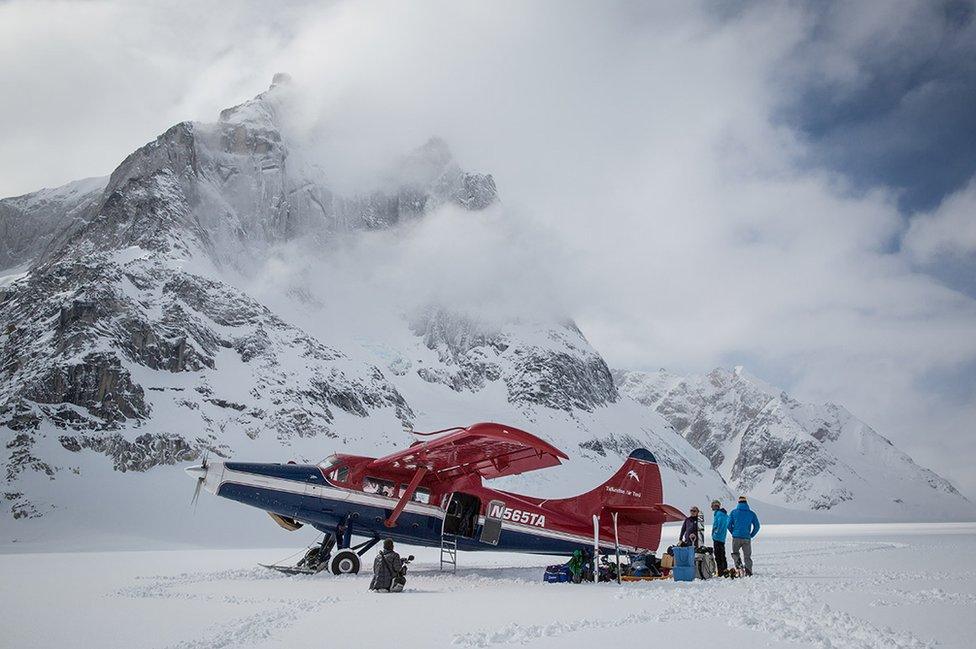
The team flew in after a break in bad weather. Heavy snowfall, however, made life tough for the climbers
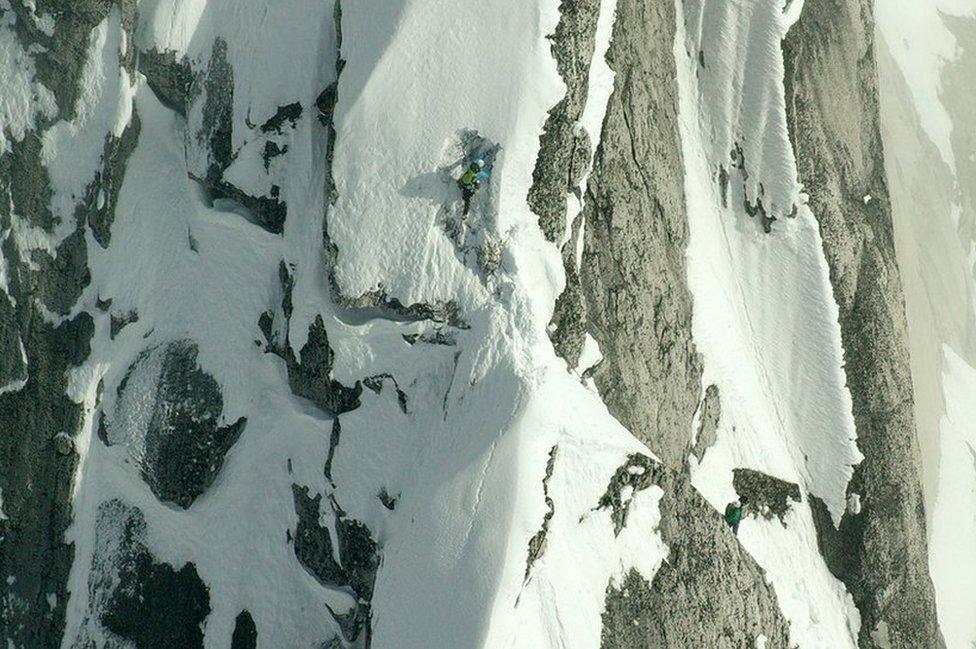
"Months of mental preparation" were required, says Jon Bracey
"Climbing a mountain and making a film about climbing a mountain are totally different," he says. "The last thing you would do is take a film crew.
"Life is harsh. It's serious if something goes wrong. You don't want your mates to get hurt, but at the same time you want a good story.
"The best stories are the worst ones to live through. A lot of producers want Touching the Void, external. You can see the pound signs.
"Certainly, this trip had its moments."
Alerted to the project in February, within weeks he and young film-maker Matt Pycroft had touched down in North America alongside the two alpinists for the assault on the peak dubbed "The Mountain God".
Storms in the preceding days saw the route plastered in feet of fluffy snow - "horrible" conditions for Helliker and Bracey to tackle.
"You're very isolated," says Lancastrian Lee. "You're so far away from everything.
"There's a real moment of impact when the access is by light aircraft. You are in in a couple of hours rather than trekking for a week. It's a huge shock to the system."
Having previously worked with the pair on 2011's Moonflower - a lower-budget effort detailing their ascent of Alaska's Mount Hunter - his admiration is clear.
But while quick to showcase their exploits, the film poses a question that has long played on Lee's mind.
"Essentially, they're extraordinary people. They're doing incredible things. There's a vulnerability to them, though, and showing them as human means people can relate to them.
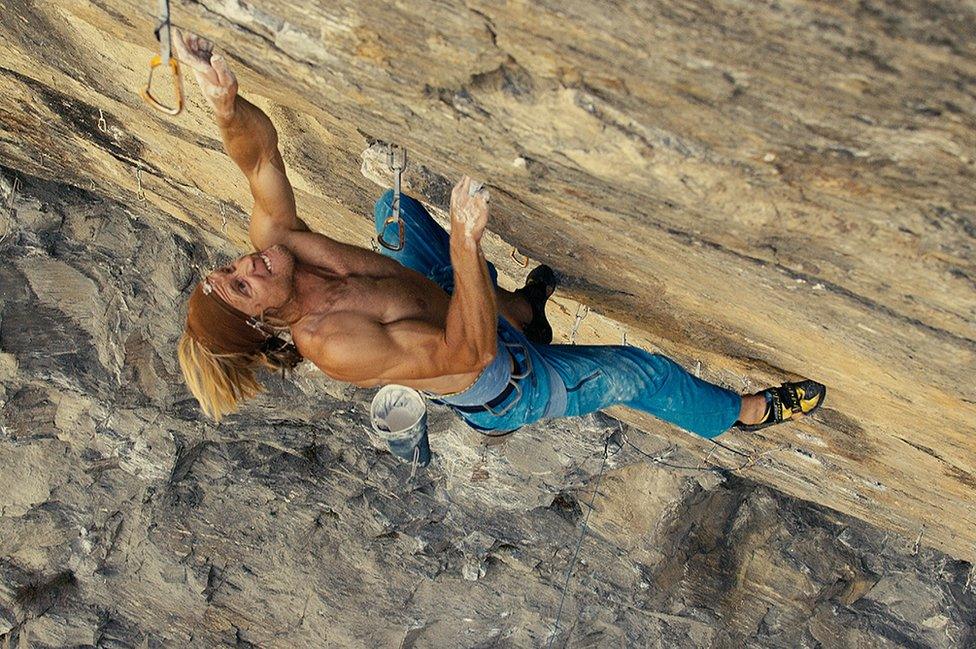
Helliker describes himself as "a mountain and ski bum"
"They're an unusual partnership, really. Their characters are so contrasting. Matt is the pin-up boy and Jon is an introverted thinker.
"They seem more like rivals than mates, but they've had this very successful career climbing mountains in the last 10 years. They obviously trust and respect each other implicitly.
"Like me, Jon is a family man and Matt has a girlfriend. Why would you want to risk that by doing something that could kill you?
"There's not an easy answer other than 'this is who we are'. If you take that away, you take part of them away."
For Bracey, it revolves around a sense of discovery.
"We have to have a healthy respect for hazards. It is scary. It's not like walking on to a tennis court and hitting a ball about for a few hours. It's really serious. There are a lot of things that can go wrong, particularly if you're not 100% focused.
"People can say you're courting danger just by going there. That's correct. That's part of the buzz - going off into the unknown, the constant search for what's over the horizon."
Helliker agrees.
"It's like a shot of espresso. It hits you quickly and goes, but that shot is so good. It's very addictive.
"The rewards it gives you outweigh the thought of ever giving it up, but for sure there are risks. What we try to do is manage it as best we can.
"We both want to come back alive."
- Published20 May 2014
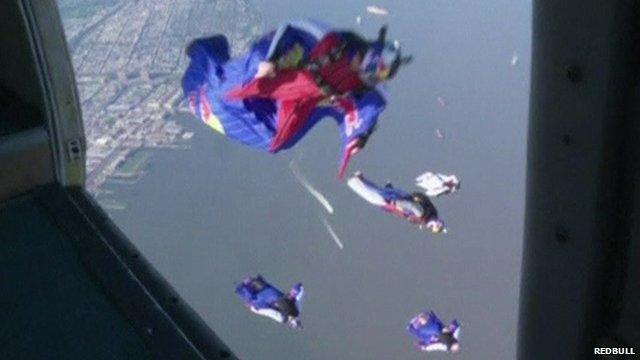
- Published9 February 2014
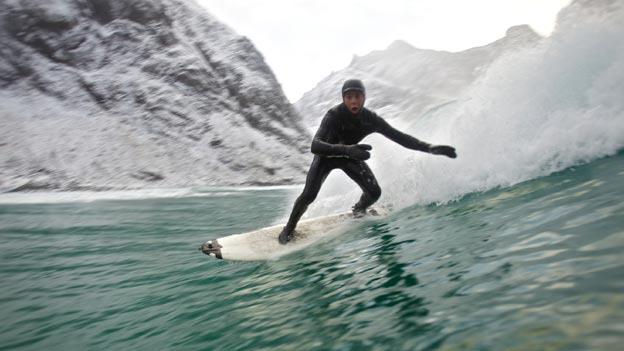
- Published11 January 2014